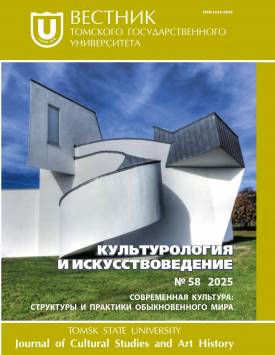Values and life strategies of modern russian summerfolk. Model approach
The article characterizes the dacha lifestyle using a model approach, which allows us to identify the value foundations of the life of modern Russian summer folk. There are three main groups of values and benefits associated with dacha culture. They are the traditional values, the values inherited from the era of industrialization and the postindustrial values. Land, home, family, work, freedom, recreation, communion with nature, creativity and protection - all of these things can be found in a concentrated form by the Russians at their dachas. The value scale determines the principles of life of summer residents. The modern model of dacha culture differs significantly from the pre-revolutionary and Soviet models. Moreover, the Russian dacha, being a fairly conservative phenomenon where the possession of land and a house is an undeniable good, mutates and changes. Today the summer folk values not just the availability of a plot of land and a house, but also their comfort thanks to providing of public services and amenities. The quality of country life matters. Family foundations in the dacha life style are preserved, but at the same time, new forms of dacha life appear, based on the bonds of close friendship. The cult of guest welcoming is undergoing a significant transformation, the relations with neighbors become rare and superficial or are completely excluded. The nature of labour is changing, and it is turning into a form of alternative leisure. The economic component of labor is gradually being lost. The modern suburbanism is associated with post-industrial changes in people’s lives. The use of dachas for self-isolation during the pandemic of COVID-19 formed a new life strategy for city residents as the opportunity to live with the whole family in a dacha all year around, and not just in the summer, and work remotely at the same time. The popularity of this lifestyle is reinforced by the availability for environmentally friendly products. Staying permanently in the countryside immerses a person in a peasant way of life. Nevertheless, this phenomenon is not similar to the inclusion of Soviet people into peasants’ labor during the dacha boom of the second half of the 20th century. Openness to the world via the Internet with the simultaneous possibility of isolation and psychological shelter in fairly comfortable conditions in the lap of nature - this set of benefits inherent in the modern dacha makes it more in demand than ever among the Russians. I express my gratitude to my scientific supervisor Anastasia Lisenkova, Doctor of Cultural Studies, Director of the Higher School of Social Sciences of the Humanitarian Institute of Peter the Great St. Petersburg Polytechnic University. Model approach to the study of dacha culture has been developed as a result of our joint discussions and exchange of opinions. The author declares no conflicts of interests.
Keywords
dacha, Russian dacha culture, models of Russian dacha culture, values, attractors, life strategies of summerfolk, dacha downshiftingAuthors
| Name | Organization | |
| Veselkova Elena A. | Perm State Institute of Culture; Culture Center “Prityjenie” | eveselkova@mail.ru |
References

Values and life strategies of modern russian summerfolk. Model approach | Tomsk State University Journal of Cultural Studies and Art History. 2025. № 58. DOI: 10.17223/22220836/58/4
